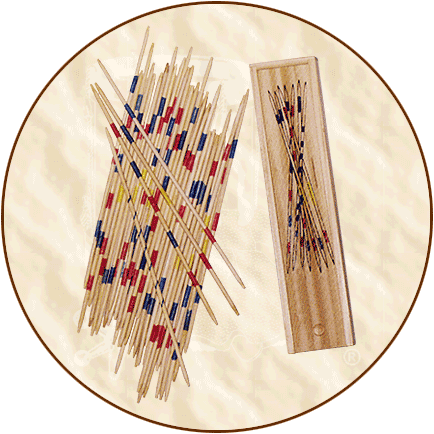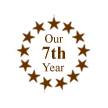.
Continued from product description on
Traditional Games' Page Four...
Historical
Background: Stick games appear in many cultures. In 12th-century
China, sticks were first used in predictions. The sticks were
scattered to "base the reading of destiny." There was
one stick called the "emperor stick." This oracle practice
was adapted by the Japanese in the 16th century. The Japanese
Emperor was referred to as "Mikado" from the word "tsuchimikado."
The Mikado version of pick-up sticks was brought to the United
States in 1936 from Hungary. The name pick-up sticks may have
come from this children's nursery rhyme:
One, two, buckle my shoe,
Three, four, shut the door,
Five, six, pick up sticks,
Seven, eight, lay them straight,
Nine, ten, a big fat hen."
Before the Mikado version of pick-up sticks appeared in America,
this game had spread from China to Korea and Japan. This game
appears to have spread to the Haida Indians of British Columbia
as well as the Lenape Native American tribe in California via
the Bering Strait or by ship across the Pacific Ocean. Native
Americans played this game with straws of wheat and taught it
to the early English settlers in the American colonies. This
became a popular parlor game for young people during the Colonial
and Victorian eras and is still enjoyed by children today.
Canadians refer to this game as "Spilikins," which
is the name used by the British. A drawing of a set of intricately
carved ivory spellicans (different spelling) is featured in R.C.
Bell's book, "Board and Table Games from Many Civilizations."
The British spellican sets, which feature carved bone or ivory,
were imported from China.
If you wish to make your own mini set of pick-up sticks, use
31 round toothpicks and paint different colored stripes on them
to represent different points. Make one stick a solid color or
with just one stripe to represent the Mikado or "emperor
stick." This stick can be used to assist picking up the
other sticks after they are scattered or dropped. Keep score
on paper and have some old-fashioned fun. The next time you play
pick-up sticks, you will know that you are having fun just as
children in ancient times did.













